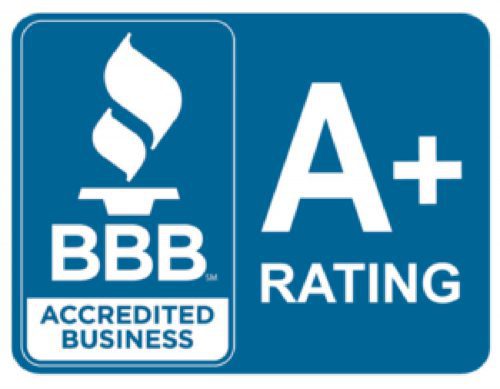Preeclampsia
Preeclampsia is a pregnancy complication that occurs when a mother has high blood pressure and there is damage to her liver and kidneys or another organ system. A mother may also have protein in her urine and low clotting factors in her blood. In severe cases, preeclampsia could result in a heart attack or stroke or nervous system disorders. It typically starts after 20 weeks of pregnancy in women who previously had normal blood pressure.
About 8% of all pregnant women are diagnosed with preeclampsia during their pregnancy. Preeclampsia is a progression of eclampsia, which is in reference to coma or convulsions that come along with preeclampsia. It is a condition that could be life threatening to the mother and the baby. In rare circumstances, preeclampsia may develop following the delivery of a baby. This condition is called postpartum preeclampsia.
Different factors may cause preeclampsia including genetics, autoimmune disorders, and blood vessel issues. Risk factors for preeclampsia include being over 35 years old, obese, pregnant for the first time, and pregnant with multiple fetuses, along with having a history of diabetes, a kidney disorder, or high blood pressure. There is nothing that could prevent this condition from developing, however, doctors may recommend that pregnant women take baby aspirin following their first trimester to avoid any issues. Preeclampsia could, unfortunately, cause birth injuries.
Symptoms of Preeclampsia
There are ways in which doctors can diagnose preeclampsia in pregnant women. If women have any of the following symptoms, they might be experiencing preeclampsia:
- High blood pressure in excess of 140 systolic or 90 diastolic
- Excess protein in the urine
- Issues with the kidney or liver
- Nausea
- Vomiting
- Shortness of breath if there is fluid in the lungs
- Upper abdominal pain, especially under the ribs on the right side of the body
- Severe and constant headaches
- Sudden weight gain, especially in the hands and face
- Changes in vision
- Decreased urine output
Some of these symptoms, like vomiting and nausea, are normal for pregnancy. But if mothers have a severe headache, shortness of breath, issues with their vision, or pain in the abdomen then they need medical help right away.
If a mother has preeclampsia but the doctor fails to take the right action to treat it, or even if they do treat it accordingly, complications in birth could still occur. A baby may become injured when it’s delivered prematurely, there is a lack of blood flow to the placenta, or placental abruption takes place. Birth injuries could include:
- Cerebral palsy
- Seizures
- Developmental disabilities
- Hypoxic-ischemic encephalopathy (HIE)
- Hearing and vision issues
- Breathing difficulties
Only a medical professional will be able to diagnose and treat preeclampsia as well as associated birth injuries.
Treatment for Preeclampsia
Once a doctor does a blood test, runs a fetal ultrasound, does a urine analysis, and/or uses a nonstress test or biophysical profile, then they can determine whether or not a mother is experiencing preeclampsia.
The way to treat preeclampsia is to deliver the baby. If a mother is still in the early stages of pregnancy, then it’s not a good idea to deliver the baby too soon. In that case, she’ll have to take nonstress tests and ultrasounds as well as blood tests more often than a mother with a normal pregnancy would. She might also have to go on bed rest, take medication, or undergo hospitalization.
If she gives birth and the baby is injured, then the treatment will vary depending on the nature of the injury. Some babies may need lifelong care for their seizure disorders and cerebral palsy, for instance. They could require surgery, medications, physical and occupational therapy, and medical equipment in order to function.
How Do I Know if Medical Malpractice Caused Preeclampsia and Birth Injuries?
A doctor has a duty of care to uphold to their patients. If they do not, that may mean they were negligent. If this negligent caused you and/or your baby to become injured, then medical malpractice could have occurred.
If your doctor failed to properly monitor you and your baby, did not induce you when they should have, or delayed or failed to give you a C-section when you needed one, then they may have been negligent. You’ll need to have proof like your medical records, photos of your injury (as well as your baby’s), and witness statements from people who saw what transpired.
Even if you think you have all the evidence you need, it might not be enough to prove medical malpractice. The bar is set high when it comes to medical malpractice so that patients don’t constantly sue their doctors. The only chance you’ll have of proving medical malpractice is to call a birth injury lawyer and ask about your case. They will let you know if you have a valid claim and you could potentially get a settlement for what happened.
How Much Will I Receive From a Preeclampsia Settlement?
There is no set amount you could receive from a preeclampsia settlement. Instead, your birth injury lawyer will calculate your economic and noneconomic damages such as your:
- Medical bills
- Loss of companionship and enjoyment of life
- Pain and suffering
- Future medical care
- Loss of earning capacity
The higher your bills are, the higher your settlement will be. If your preeclampsia resolved at birth and your baby’s injured cleared up on its own, then your settlement would be lower, for example. But if your baby suffered from cerebral palsy, then they will need care for the rest of their lives and your settlement could possibly be higher.
Settlement Offers in a Preeclampsia Case
When you’re ready to contact a birth injury lawyer, they’ll collect your evidence and help you gather additional proof if needed. They will take this evidence to the defendant (the doctor) and then work hard to negotiate a suitable settlement for you.
The defendant may settle right away or your lawyer might need to negotiate with them. Rarely do these cases go to court. Doctors don’t want to spend their time and energy going to court because they may end up having to pay you a higher settlement. Plus, the public could find out, and that could reflect poorly on them.
Why Reach Out to a Birth Injury Lawyer?
If you had preeclampsia, you may still be recovering after giving birth. And if your baby has an injury, then you’re busy taking care of them. You want to receive the compensation you deserve but you just can’t negotiate or go to court right now. That’s your lawyer’s job. They will stand up for you and fight for the damages that are rightfully yours.
Preeclampsia Birth Injury Attorneys
If you think medical malpractice was to blame for complications with your preeclampsia and birth injuries, then you’ll need a lawyer to represent you. Thankfully, Gilman & Bedigian are ready to help.
Contact Gilman & Bedigian 24/7 for a free consultation at (800) 529-6162.











